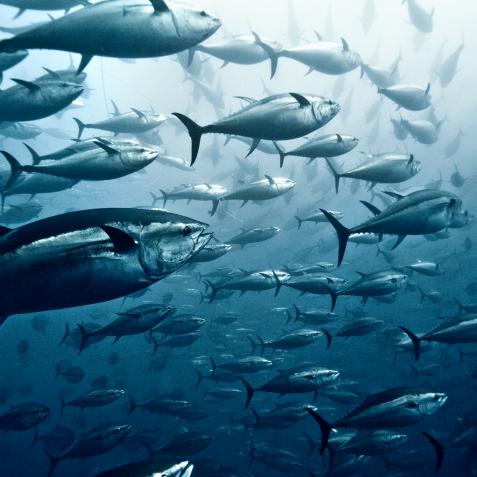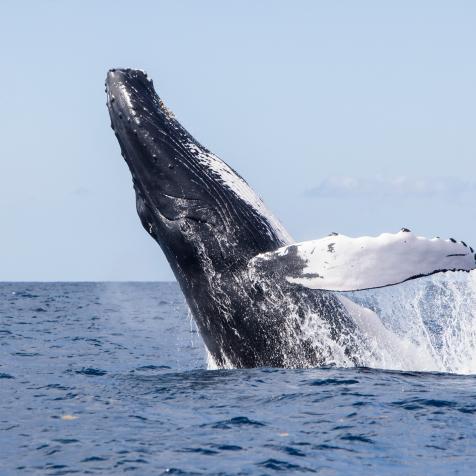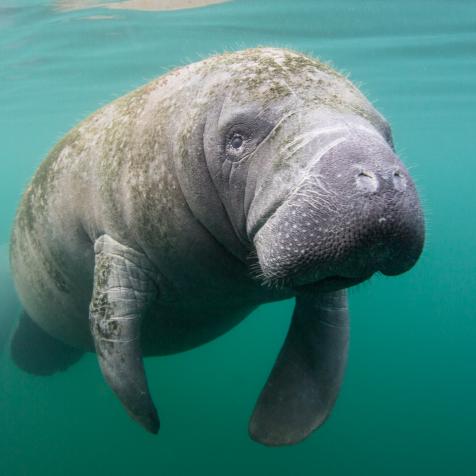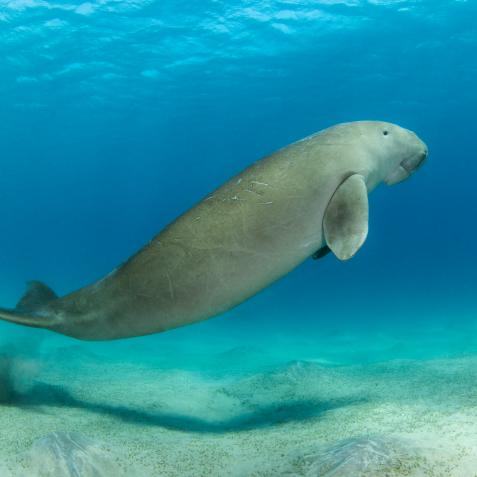
The Mission to Rehabilitate Orphaned Manatees
Florida manatees are dying in record numbers from starvation. Critical care rescue and rehabilitation centers are running out of room. Georgia Aquarium has joined the Manatee Rescue & Rehabilitation Partnership (MRP) to provide additional expert care and facilities for manatees in need.
On March 9, 2022, two manatees arrived at the Aquarium’s off-site Animal Care Facility from SeaWorld Orlando for ongoing care until they are deemed healthy enough for release back into the wild.
The orphaned juveniles, an approximately 160-pound male and 175-pound female, were rescued in December and have received rehabilitative care at SeaWorld Orlando since then.
The female was only 124 pounds when she was found suffering from cold stress in Blue Springs, Florida. The male was found near a Port St. John, Florida power plant with a deceased female, most likely his mother, and was only 126 pounds.
The two are now stable and have moved to the next phase of their recovery.
In 2021, 1,101 manatees died, primarily from starvation due to loss of seagrass in the Indian River Lagoon, a result of pollution and ongoing water quality issues. As of March 2022, over 400 manatees have already perished. Other challenges manatees face include cold stress and boat strikes.
Saving Manatees from Starvation 10 Photos
Manatees often called sea cows, are thought to have inspired the mermaid legend. Sadly, these peaceful creatures are facing a starvation crisis. See how the team at Georgia Aquarium is working to rescue and rehabilitate manatees in crisis.
The MRP is a cooperative group of entities dedicated to the rescue, rehabilitation, release, and monitoring of manatees. As part of this partnership, Georgia Aquarium designated additional rehabilitation areas at its Animal Care Facility, which boasts new life support systems, access to veterinary care and monitoring, and ample space. This facility is an additional recovery care space for manatees until they are healthy enough for release, and for other animals in need of rehabilitation or quarantine. The manatees being cared for by Georgia Aquarium will not be on display to the public.
Vice president of zoological operations at Georgia Aquarium, Eric Gaglione, explained the Aquarium’s involvement with manatees, “Georgia Aquarium has been involved in manatee research and health assessments for several years, but this is the first time we have manatees under our care. We are honored to join our colleagues in the Manatee Rescue and Rehabilitation Partnership and give these two orphaned manatees a fighting chance. Manatees are in crisis, and it is our role as an accredited aquarium to do everything we can to change their fate in the wild.”
Once the manatees have reached sufficient size and become healthy enough to survive on their own, they will be returned to the care facility at SeaWorld Orlando before being released back into the wild.

















.JPG.rend.hgtvcom.476.476.suffix/1591739192725.jpeg)

